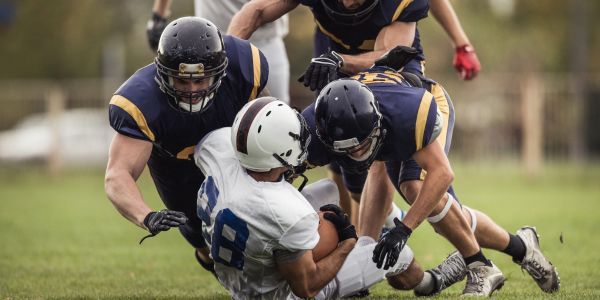How to Handled Challenges with Youth Athletes
At Peak Performance Sports, we’re contacted everyday by sports parents wanting us to work with their young athletes.
They are often looking for resources or coaching to improve their athletes mental game and performance.
In some cases, sports parents contact us because they realize they are putting too much pressure on their kids and want us to help them.
We’ve survey over 3000 sports parents asking them what their biggest challenges are as sports parents–and what they think are the mental game challenges for their young athletes.
Here are the results of the survey:
The top 4 challenges for sports parents are the following:
- Understanding how to help their young athlete get the most out of his or her talent without pressuring them.
- Understanding how to approach their young athletes about improving performance.
- Figuring out how to identify when their young athlete is struggling with the mental game of sports.
- Helping their young athletes be more competitive or aggressive in sports.
The tops 4 challenges for their athletes include the following:
- Struggling with doubts and negative thoughts about their performance.
- Having trouble letting go of mistakes and becoming easily frustrated or angry.
- Worrying too much about what others (coach, parents, friends) think about their game
- Performing tentatively or lack assertiveness against skilled players.
As a mental coaching who has worked with many sports parents over the last 30 plus years, I’ve (Dr. Cohn) learned that sports parents can be either a positive or negative influence on their athletes.
Many sport parents have a positive impact on their athletes’ mindset for sports… Sports parents can:
- Instill confidence in their athletes.
- Help them focus on what’s important.
- Help athletes learn life skills through sports.
- Teach athletes how to cope with failure.
- Are positive on the sidelines and post-game.
However, some sport parents can have a negative impact on their athletes’ mindset. Sports parents can:
- Place high expectations on their kids.
- Focus too much on mistakes.
- Instill perfectionism.
- Make kids feel like they are not good enough when they perform.
- Can trigger lack of composure in their athletes.
For these reasons, we work closely with athletes’ parents to make sure that they are a positive influence.
We provide 3 important tools for sports parents to improve their athletes’ experience. These include:
- A test to assess sports parents’ support of their athletes’ mental game.
- Pregame behavior tips for sports parents.
- Post-game behavior tips for sports parents.
If your athletes can benefit from one-on-one coaching, please contact my team at Peak Performance Sports. We help athletes–all over the world–improve their mindset for sports by meeting on Zoom or Facetime.
And as a sports parent or coach, you’ll receive tools and coaching to help improve your communication with their athletes.
If you want to give your athletes the mental game edge or improve your communication with athletes, please contact my team at Peak Performance Sports.
Related Kids Sports Psychology Articles:
- Success Tips for Parents: Kids Who Stop Trying
- Parents Should Show Sports Kids They Care About More than the Win
- The Mental Game Challenges of Injuries in Youth Sports
*Subscribe to The Sports Psychology Podcast on iTunes
*Subscribe to The Sports Psychology Podcast on Spotify
Helping Perfectionist Young Athletes
Now, you can learn how to help young athletes overcome the difficult cycle of perfectionism, fear of failure and loss of confidence. You can stop guessing about what to do and say to your athlete!
As an active sports mom and parenting author, I’ve asked my brother, a sports psychology expert who had helped his students with these same challenges for over 15 years, to help me develop a program for young athletes.
Our program: “Sports Parents’ Top Dilemma: Helping Young Athletes Kick Perfectionism and Fear of Failure,” will walk you through the problem and arm you with practical solutions you can start implementing today.
You’ll start seeing changes in your young athlete’s confidence almost immediately.

